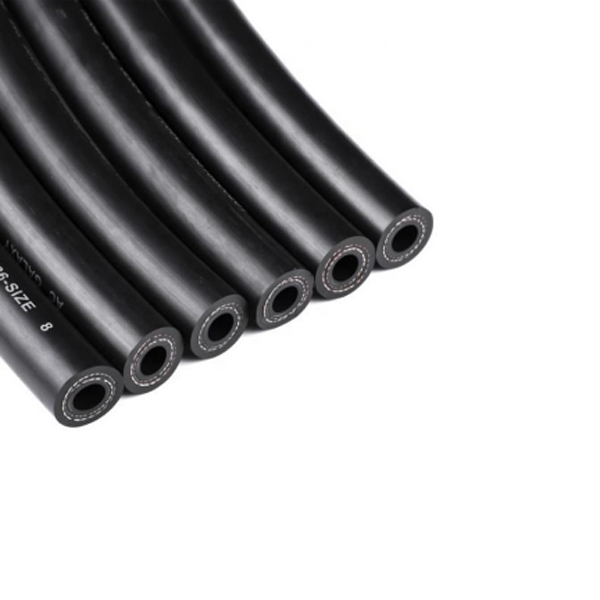Choosing the Right Hydraulic Oil Hose for Optimal Performance in Fluid Power Systems
Ago . 11, 2024 18:26 Back to list
Choosing the Right Hydraulic Oil Hose for Optimal Performance in Fluid Power Systems
Understanding Hydraulic Oil Hoses Essential Components for Fluid Power Systems
Hydraulic systems play a critical role in various industries, providing the necessary power to operate machinery and equipment. One of the key components of these systems is the hydraulic oil hose, a vital link that facilitates the transfer of hydraulic fluids under pressure. In this article, we will delve into the importance, construction, applications, and maintenance of hydraulic oil hoses.
Importance of Hydraulic Oil Hoses
Hydraulic oil hoses are designed to convey hydraulic fluid from one part of the system to another, ensuring that machinery operates smoothly and efficiently. The efficiency of hydraulic systems depends on delivering the right amount of fluid at the correct pressure. Any failure or leakage in the hydraulic hose can lead to a loss of pressure, resulting in reduced performance or even catastrophic system failures. Thus, the reliability of hydraulic oil hoses is paramount for the safety and efficiency of operational processes, making them crucial in industries like construction, manufacturing, and agriculture.
Construction of Hydraulic Oil Hoses
Hydraulic oil hoses comprise several components, each engineered to withstand the demanding conditions of hydraulic systems. The primary structure consists of an inner tube that directly carries the hydraulic fluid, typically made from synthetic rubber or thermoplastic materials. This inner layer must be resistant to abrasion and compatible with various fluids to prevent degradation over time.
Surrounding the inner tube is a reinforcement layer, usually made of braided or spiral steel wire. This reinforcement is essential for enabling the hose to withstand the high pressures typical in hydraulic applications, which can reach several thousand psi. Finally, the outer layer provides additional protection against environmental factors such as UV rays, chemicals, and physical abrasion. It is often made from rubber or thermoplastic elastomers, which enhance the hose's durability and longevity.
Applications of Hydraulic Oil Hoses
hydraulic oil hose

The applications of hydraulic oil hoses are vast and varied. In the construction and heavy machinery sectors, these hoses are integral to operating excavators, forklifts, and bulldozers. Hydraulic hoses enable these machines to perform tasks like lifting, digging, and moving heavy loads with precision and power.
In the manufacturing sector, hydraulic systems driven by these hoses control automation processes, including the operation of presses, injection molding machines, and conveyor systems. Even in the agricultural industry, hydraulic oil hoses are vital for powering tractors and harvesting equipment, allowing for efficient farming operations.
Maintenance of Hydraulic Oil Hoses
To ensure optimal performance and longevity, regular maintenance of hydraulic oil hoses is essential. Operators should perform routine inspections to check for signs of wear, abrasion, or any leaks. Common indicators of issues include visible cracks in the hose, swelling, or any unusual bulging that may indicate internal damage.
It is crucial to replace hoses at the first sign of deterioration, especially in high-pressure applications, to avoid safety hazards. Additionally, proper storage and handling of hydraulic hoses can prevent damage during transportation and installation. Following manufacturer guidelines for installation and usage is vital to achieving the best performance and safety standards.
Conclusion
In summary, hydraulic oil hoses are indispensable components of hydraulic systems across many industries. Their robust construction ensures the safe and effective transfer of hydraulic fluids under pressure, supporting diverse applications ranging from construction machinery to manufacturing processes. Regular maintenance and inspections can help prevent failures and prolong the life of these essential hoses, ensuring that hydraulic systems function efficiently and safely. With the right knowledge and care, operators can maximize the performance of their hydraulic systems and minimize disruptions in their workflows.
